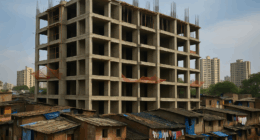New Delhi, August 28, 2024 — The Ministry of Urban Development has introduced new and updated guidelines for green building certifications, signaling a major step forward in promoting sustainability and energy efficiency across India’s real estate sector. This initiative is part of the government’s broader commitment to enhancing environmental standards and encouraging the development of eco-friendly infrastructure.
Key Highlights of the New Guidelines
- Enhanced Sustainability Criteria: The updated guidelines incorporate stricter sustainability criteria, focusing on reducing the environmental impact of construction projects. They include requirements for the use of renewable energy sources, water conservation measures, and the implementation of waste reduction practices throughout the building lifecycle.
- Energy Efficiency Standards: The guidelines set new benchmarks for energy efficiency in both residential and commercial buildings. These standards emphasize the integration of energy-efficient technologies and systems, such as advanced HVAC systems, high-performance insulation, and smart lighting controls.
- Green Building Materials: There is a stronger emphasis on the use of eco-friendly building materials. The guidelines encourage the selection of sustainable materials that have a lower carbon footprint and promote the recycling of construction waste.
- Indoor Environmental Quality: The updated guidelines aim to improve indoor environmental quality by setting standards for natural lighting, ventilation, and air quality. These measures are designed to enhance the health and well-being of occupants while reducing the building’s overall energy consumption.
- Certification Levels and Incentives: The guidelines introduce multiple levels of certification to recognize varying degrees of environmental performance. They also offer incentives for projects that achieve higher levels of certification, including potential tax benefits and expedited approvals.
- Compliance and Monitoring: To ensure adherence to these new standards, the guidelines outline a robust compliance and monitoring framework. This includes regular inspections and reporting requirements to verify that buildings maintain their green certifications over time.
Impact on the Real Estate Sector
The introduction of these updated guidelines is expected to drive significant changes in the Indian real estate sector. By promoting green building practices, the Ministry aims to reduce the environmental impact of construction and encourage developers to adopt more sustainable practices. This move aligns with global trends towards sustainability and responds to growing consumer demand for eco-friendly living spaces.
Real estate developers will need to adapt to these new standards, which may involve investing in new technologies and materials. However, the long-term benefits include reduced operational costs, improved property values, and a positive contribution to environmental conservation.
Government’s Vision
The Ministry of Urban Development’s initiative reflects a broader vision of creating greener, more resilient cities. By integrating sustainability into the core of urban development, the government seeks to foster a culture of environmental responsibility and support the transition towards a more sustainable future.
As the real estate sector evolves to meet these new guidelines, the updated green building certifications are poised to set a new benchmark for environmental performance in India’s urban development landscape.
Also Read: Surge in Green Office Spaces: Bengaluru and Mumbai Lead as Demand Soars in H1 2024









